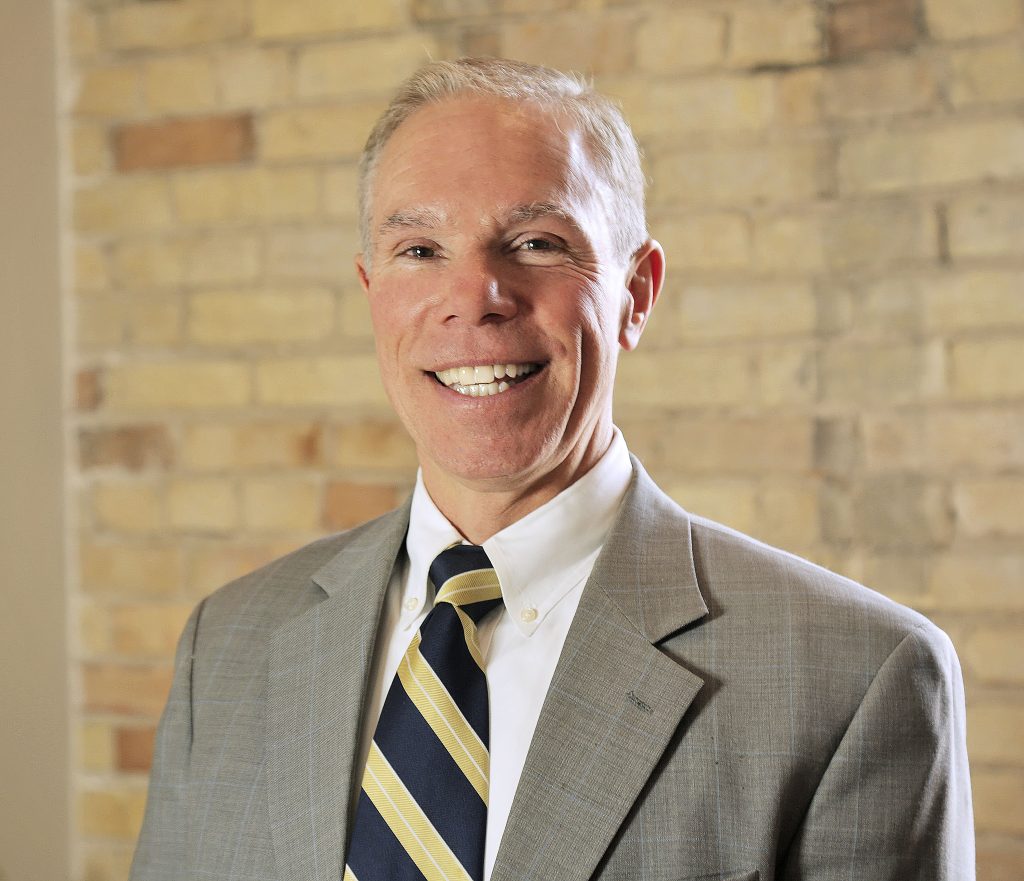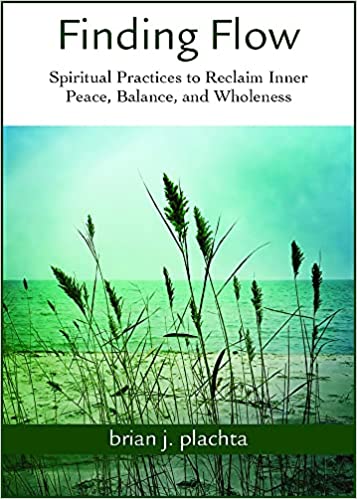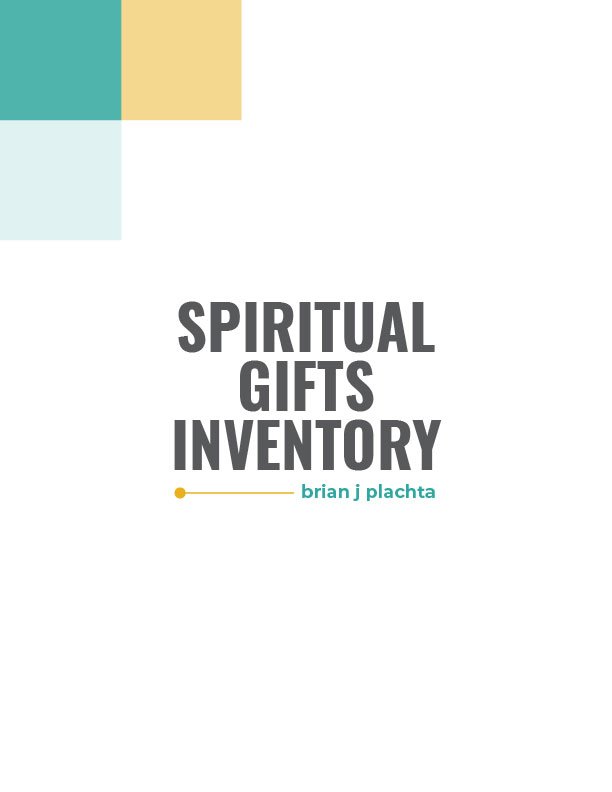
Brian Plachta, author of Finding Flow
Gary Neal Hansen: Brian, I think my readers will be very interested in what you are currently working on, as well as your previous book, Finding Flow. thank you so much for agreeing to let me interview you.
If someone looked at both parts of your vocational life they might wonder how they fit together. On the one hand, you’re a lawyer. On the other, you write on contemplative prayer and are a spiritual director. Do the two relate? More importantly, tell me how you came to this place of wanting to teach others about the riches of contemplation.
Brian Plachta: My model for balancing being a lawyer and a spiritual director/writer is St. Paul, who we learn in Acts 18:3 was both a tentmaker and a disciple of Christ. Like Paul’s tent-making job, my work as a lawyer supports my family and keeps me grounded in real-life challenges. This authentic connection to everyday life shapes my writing and teaching style I call “street level spirituality.” Whether it’s keeping clients happy, working long hours, changing diapers, or cutting the grass, I try to find God’s presence in it all.
My journey into teaching and writing about contemplative prayer began thirty years ago as I sought to integrate my legal career with my spiritual life. Through daily meditation and study, I’ve learned how to connect directly with God and find divine guidance. I feel called to share this journey with other seekers, helping them discover a deeper relationship with God amidst their daily life and struggles.
Brian’s Practice
GNH: Can you give me a thumbnail sketch of your own meditation practice? What do you, personally, actually do when you are practicing contemplative prayer?
BP: For the past 30 years, I’ve made daily meditation a cornerstone of my life. It all began when a spiritual mentor encouraged me to develop a practice to deepen my relationship with God and my true self. Each morning, I wake up around 4:30 am and spend an hour in silent meditation. During this quiet time, I listen attentively to what God might place on my heart and mind. Sometimes a word or phrase arises spontaneously within me, and I trust it as God’s invitation for the day. Other times, I bring questions or concerns to God while having what I call “Coffee with the Creator.” In the stillness, I often hear a gentle whisper guiding me. This sacred practice has become life-giving for me, nurturing a deep connection with God and providing the best start to my day. It’s become as natural as brushing my teeth—don’t start the day without it!
How to Get Started with Contemlation
GNH: Wow! 30 years of growing in this gives you a really solid practice. What would you advise someone to do as a beginning practice if they have zero experience in meditation or contemplative prayer of any kind? Say, someone who can’t get up at 4:30, and who would be hard pressed to set aside even 15 minutes per day. What could a beginner try in maybe 5 minutes per day for one week?
BP: Start small and be gentle with yourself. Even five minutes a day can make a difference. Here’s a simple way to begin:
- Create a Sacred Space: Find a quiet spot in your home where you can sit comfortably. Add images, nature items, or a candle to make it your sacred space for you and God.
- Commit to a Time: Pick a daily time to “be” with God and continue showing up for your quiet time for seven days. Consistency will help turn this time to be with God into a habit you look forward to every day.
- Set an Intention: Light a candle to symbolize your desire to connect with God. Close your eyes, take a few deep breaths, and relax your body.
- Smile. Put a gentle smile on your face. A smile sends a signal to your brain to release calming endorphins which make you and your brain happy.
- Use a Simple Prayer: Silently repeat a prayer phrase like, “May I be filled with peace” or “God, I’m here.” This helps calm your mind and open your heart.
- Notice What Arises: Pay attention to any emotions or sensations. If your mind wanders, which is normal, gently return to your prayer phrase.
- Reflect: After your quiet time, jot down in a journal, on the notes section of your cell phone, or on post-it note any insights, images, or words that came to you. Reviewing these “love notes” from God from time to time can reveal how the Spirit is guiding you.
You don’t have to get it perfect—just showing up with intention is the key. Over time, as the practice becomes more natural, you might find yourself naturally wanting to extend those few minutes.
Remember, each of us has unique ways we relate to God. Find your pathway to creating your special space with God. Let the quiet nourish your soul as you celebrate, “Who you are is how you pray.”
What Meditation Does for Us
GNH: That sounds very workable. Now as you’ve worked with people on this journey of trying out a more contemplative prayer practice, what do they report as the effects? (That might be something in the mind, the body, the spirit, whatever.) What Would you expect to notice after a week? A month? A year?
BP: When people begin meditating, they often notice changes in their mind, body, and spirit over time. In the first week, they may experience a quieter mind and reduced stress, though restlessness or frustration can surface as they adjust. After a month, many feel more mentally clear, focused, and emotionally balanced. Physically, they might notice improved sleep, lower blood pressure, or reduced muscle tension. Spiritually, many people begin to feel more connected to themselves and God. There’s a sense of inner peace that extends beyond the self. They’re in what I call, the “Divine Flow” of God’s grace.
By a year, meditation can deeply transform a person’s sense of being. They begin to experience “putting on the Mind of Christ” as the mind becomes more resilient and calm, and the body feels healthier and energized. Many people report feeling a closer, intimate and personal connection with God. They experience a deeper sense of purpose, gratitude, and divine guidance. Instead of intellectually just knowing about God, they experience God in a real and tangible way. God becomes their inner teacher, their friend, a constant companion who loves and guides them in daily life.
Meditation helps foster this connection between God and one’s self, leading to a more compassionate, authentic life that is aligned with ongoing spiritual growth and unfolding inner peace.
Brian’s first book, Finding Flow
GNH: That sounds awesome, and rings true. You mentioned your term “Divine Flow.” I know your book with Paulist Press is called Finding Flow, and this is the central topic. I first heard of “flow” through the work of pioneering University of Chicago psychologist Mihalyi Csikszentmihalyi whose research in the 1970s made the term prominent. His popular version Flow: The Psychology of Optimal Experience was a game changer for me. How does your use of the term relate to that body of work?
BP: In my book Finding Flow: Spiritual Practices to Reclaim Inner Peace, Balance, and Wholeness, I build on Mihalyi Csikszentmihalyi’s concept of “flow,” but extend it into a spiritual dimension. While Csikszentmihalyi describes flow as the state of being fully immersed in an activity, leading to a sense of joy and fulfillment, I explore what I call “Divine Flow.”
This is a deeper sense of alignment with God’s Divine Presence within and around us. It’s about attuning to the sacred rhythm of life, where we feel guided by the Holy Spirit. Divine Flow is more than peak performance or optimal experience; it’s about connecting to inner peace, balance, and wholeness through spiritual practices that ground us in the present moment. In this sense, my work complements Csikszentmihalyi’s research by adding a contemplative and spiritual layer to the flow state.
Experiencing Divine Flow
GNH: That’s very cool. So how do we get to that state of Divine Flow?
BP: To get into the Divine Flow and sustain our connection with God’s grace, I outline four key spiritual practices: quiet time/solitude, spiritual reading, community, and using our spiritual gifts. Quiet time invites us to listen to the still, small voice within; spiritual reading nourishes the mind and soul; community provides support and accountability; and spiritual gifts allow us to serve others in meaningful ways. These practices help us connect to the deeper flow of life, bringing inner peace, balance, and wholeness.
Brian’s New Book Project
GNH: I believe you are working on a new book. What’s it going to be about? And how can my readers find out more?
BP: Divine Flow is a natural continuation of the journey I wrote about in my previous book, Finding Flow. While Finding Flow offers practical spiritual practices to reclaim inner peace and balance, Divine Flow delves deeper into the Christian contemplative tradition.
This tradition, which has been somewhat forgotten in modern Christianity, is a rich and ancient pathway to direct experiences with God. It’s rooted in the life and practices of Jesus and the first Christian community, often referred to as ‘The Way.’ Over time, saints and spiritual leaders preserved this tradition, and now it’s experiencing a resurgence as people seek to quiet their minds and deepen their spiritual relationship with God.
In Divine Flow, I explore how the contemplative path offers a profound way to encounter the Divine in our everyday lives. I trace its history to show how this tradition is not just a distant practice but an integral part of Christian spirituality. By revisiting these contemplative roots, we can experience God in a more direct and personal way, finding greater connection with both God and our inner selves.
I anticipate Divine Flow will be published in mid to late 2025.To further support people’s spiritual journey, I offer several free resources on my website, brianplachta.com. These tools, including a spiritual gifts inventory, guides, and quizzes, are designed to help people integrate these 4 practices into their daily life and experience the transformative power of Divine Flow.
I also write a weekly blog that I send out free via email to over 6000 subscribers. It’s called: Simple Wisdom for Everyday Living.
Brian’s Free Spiritual Gifts Inventory
For those people who want to dive deeper into their faith journey, I would suggest they start by downloading the free Spiritual Gifts Inventory from my website, which will also subscribe them to the weekly Simple Wisdom reflections.
Here’s the link to the Spiritual Gifts Inventory and subscription: Discover Your Spiritual Gifts
GNH: Thank you Brian!
++++++++++++
(This post contains affiliate links, so if you make a purchase I get a small commission at no extra cost to you.)



Leave a Reply